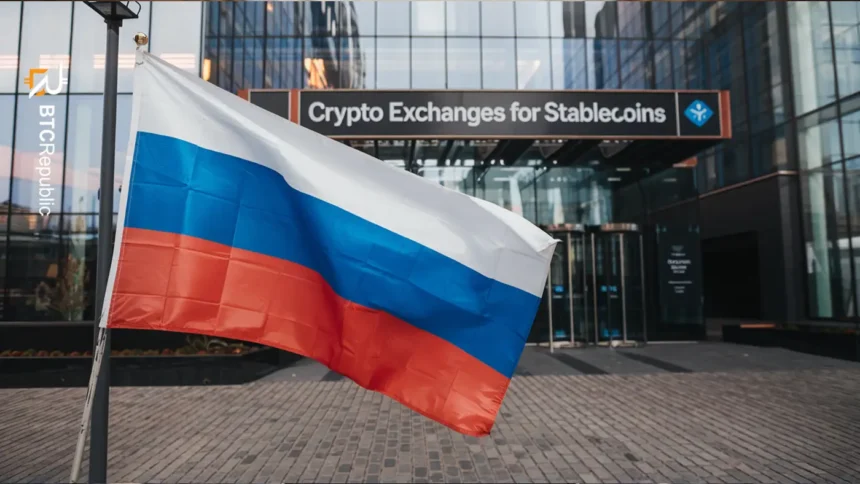Russia is currently making plans to launch two new crypto exchanges – one in Moscow and the other one in St. Petersburg – to enhance its foreign economic activities (FEA).
This move is considered a part of Russia’s smart decisions to overcome the sanctions that have been battling the country’s financial sector.
Russia To Launch Crypto Exchanges To Boost It’s Foreign Economic Activity
According to a local news outfit, Kommersant, the St. Petersburg-based crypto exchange will possibly integrate with the domestic St. Petersburg International Mercantile Exchange (SPCE), utilizing its infrastructure to boost the country’s foreign economic activity.
Although the second crypto exchange will be based in Moscow, it has not been confirmed yet whether the exchange will integrate with the existing Moscow Exchange or will be developed as a separate framework.
It should be noted that the main purpose of establishing these crypto exchanges is not in any way to promote cryptocurrency trading but to develop stablecoins, especially those linked with Chinese Renminbi (RMB) Yuan and BRICS stablecoin.
Hence, launching these crypto platforms is expected to strengthen the economic cooperation among the BRICS nations, which primarily comprise Brazil, Russia, India, China, and South Africa.
For context, the BRICS nations are currently moving towards de-dollarization through cryptocurrency and blockchain.
Implications Of Global Sanctions On Russia’s Initiative
Following its invasion of Ukraine, Russia has continuously faced the mounting pressures of Western sanctions.
To navigate the sanction landscape, circumvent economic constraints, and boost economic activities, Russia embraced the power of cryptocurrency.
Despite the potential benefits of digital assets, transactions on the new crypto exchanges are fraught with significant risks, particularly concerning sanctions. This is due to the transparent nature of blockchain technology
For instance, stablecoins purchased on a Russian exchange could be tracked and flagged as suspicious. This may even lead to the blocking of transactions in the face of persistent sanctions.
Presently, Russia’s crypto sector is regulated by a local bill “On Digital Financial Assets.” While this bill provides a framework for digital financial assets, it lacks specific guidelines for cryptocurrency exchanges.
Hence, the development of stablecoins via the new crypto exchanges may be challenging and impact the seamless adoption of stablecoins in Russia.
However, an insider revealed that the new exchanges will first operate as a pilot under the experimental legal regime, to test the waters.
Nevertheless, the soon-to-be-launched crypto exchanges are expected to be launched with a limited user base immediately after launch before expanding gradually to increase the users base.
This initiative by Russia is meant to explore ways of providing local businesses with a stable means of cross-border transactions. Although this initiative is still in its developmental stage.
As the world watches closely, Russia’s initiatives towards crypto adoption will certainly influence the continuously evolving global financial landscape, with far-reaching implications for international trade, regulatory frameworks, and the broader cryptocurrency adoption.










